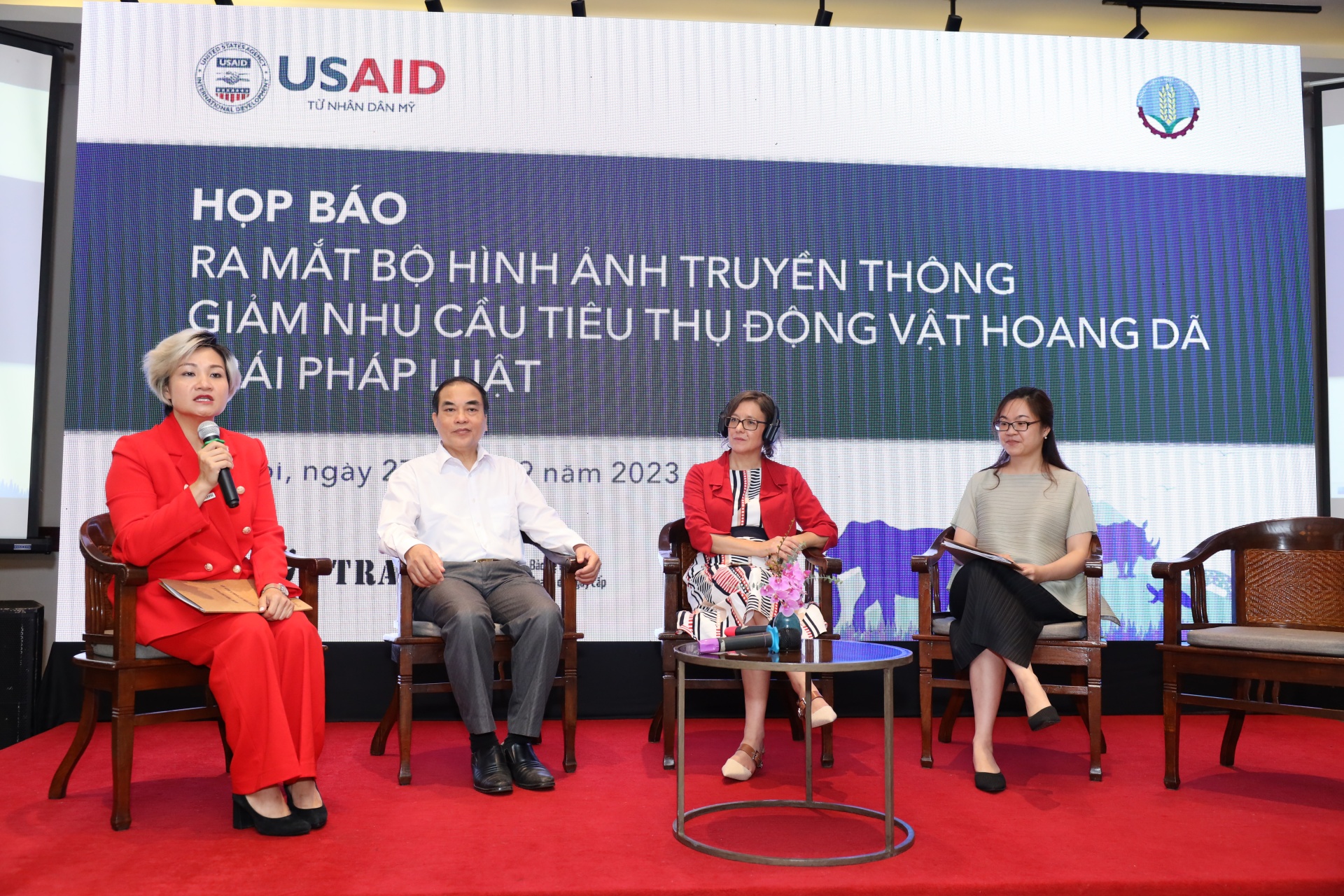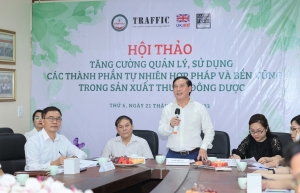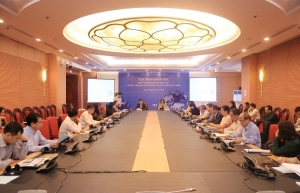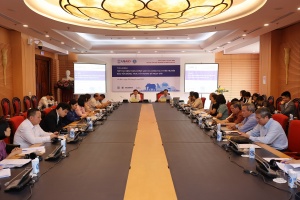New messages released to combat illegal wildlife products
 |
The materials were designed to target specific users, drawing on local consumption evidence and insights collected by the non-governmental organisation TRAFFIC during the research it conducted in 2022.
The findings revealed the continuing demand for illegal wildlife products, including those derived from rhinos, elephants, pangolins, fresh-water turtles, and tortoises.
The self-reported survey responses have helped pinpoint the behaviours that need changing and have identified specific groups for intervention. These encompass traditional medicine practitioners, domestic and international tourists, and general consumers.
Five culturally tailored messages and visuals have been tested to resonate with local audiences. They address the motivations behind the consumption of illegal wildlife products, and encourage social mobilisation with youth and government agencies.
The project is urging traditional medicine practitioners to prescribe and use legal, safe, and sustainable ingredients. It also encourages general users seeking health benefits to become involved in sports and physical activities rather than the consumption of rare wildlife products.
Another target group is international tourists, for whom the materials emphasise the illegality of purchasing protected wildlife products in Vietnam.
Regarding youth mobilisation, the initiative leverages the influence of the younger generations to discourage their families and older relatives from using these products. On a national level, it also highlights the pride associated with protecting Vietnam’s wild species.
The new materials will be employed in social media campaigns, distributed to target groups in high-traffic tourist locations and at interactive events, and integrated into collaborative initiatives with partners including the Tourism and Traditional Medicine Associations.
Michelle Owen, chief of party at the Saving Threatened Wildlife project said, “The launch of these visuals and the participation of many different representatives highlight the will to reduce the demand for illegal wildlife products. The involvement of different sectors, such as the tourism and traditional medicine associations, also sends a strong message that they want to see social change.”
The Saving Threatened Wildlife project provides funding from USAID to the Ministry of Agriculture and Rural Development through the Management Board for Forestry Projects. It is implemented by the World Wildlife Fund, TRAFFIC, and ENV.
 | Vietnamese companies reject illegal wild species-based ingredients and products 30 traditional medicine, healthcare, and pharmaceutical companies from Vietnam have committed to stamping out illegal wild species ingredients in their manufacturing and sales of traditional medicines (TM). |
 | TRAFFIC and Vietnam plan strengthened wildlife legislation and communications Wildlife trade monitoring network TRAFFIC proposed to strengthen Vietnam's national conservation laws to bolster the enforcement and ways in which communications campaigns could best support wildlife legislation. |
 | USAID supports wildlife conservation dialogue A wildlife protection dialogue in Vietnam has been organised by many key players in the field. |
What the stars mean:
★ Poor ★ ★ Promising ★★★ Good ★★★★ Very good ★★★★★ Exceptional
 Tag:
Tag:
Latest News
More News
- Vietnam Television launches third 'Song Sau Lu' project for 2025 (December 15, 2025 | 08:00)
- Closing workshop highlights five-year impact of Fair for All project (December 12, 2025 | 16:22)
- Stakeholders mobilised before new child safety rules take effect (December 10, 2025 | 09:00)
- Vietnam receives emergency international relief as regional flooding intensifies (December 04, 2025 | 15:11)
- AmCham scholarships awarded to students (December 02, 2025 | 16:46)
- Vietjet flights carry love to devastated central region (November 28, 2025 | 11:35)
- SCG Sharing the Dream supports Vietnam’s youth and sustainable development goals (November 28, 2025 | 10:55)
- Siemens Caring Hands donates $34,700 for disaster relief in Vietnam (November 26, 2025 | 20:25)
- Ireland extends support for the Resilience First initiative (November 26, 2025 | 15:24)
- South Korea funds IOM relief for Vietnam’s typhoon-affected communities (November 24, 2025 | 15:33)
















 Mobile Version
Mobile Version